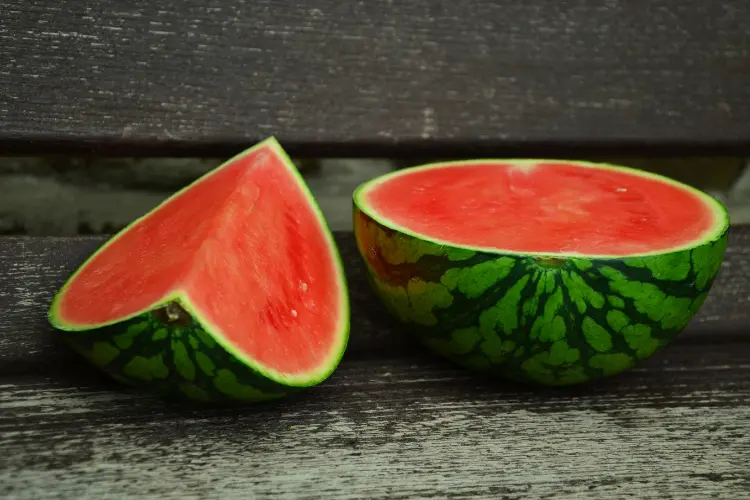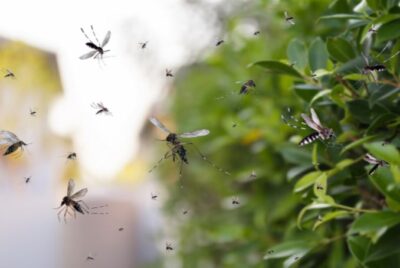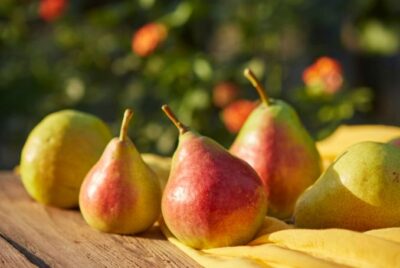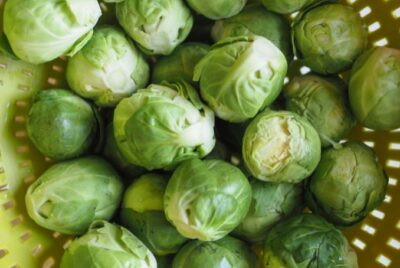Can Chickens Eat Watermelon Safely? You Should Know This
Chickens are renowned for their versatile diets, ranging from grains and vegetables to insects and worms. But when it comes to fruits, especially treats like watermelon, many chicken keepers question: Can chickens eat watermelon?
Is Watermelon Good for Chickens?
Yes, watermelon can be a refreshing and healthy treat for chickens when given in moderation. Watermelon is primarily composed of water and contains various vitamins and minerals, making it a hydrating and nutritious snack for chickens.
Chickens can enjoy watermelon as a hydrating and refreshing treat during the summer months, and it can help them to stay cool in the heat. Chicken keepers must be mindful of their flock’s comfort and well-being, especially during hot weather.
Offering watermelon, as well as providing shade, fresh water, and good ventilation, can help chickens cool down to cope with high temperatures.
What Is Inside A Watermelon?
- Antioxidants: Watermelon is rich in antioxidants, more so than tomatoes, strawberries, or many other fruits and vegetables. These antioxidants can protect cells from damage caused by free radicals and contribute to overall health.
- Lycopene: Watermelon contains lycopene, a carotenoid known for its immune-boosting properties.
- Vitamin C: Chickens can have difficulty producing vitamin C under stress from excessive heat. Watermelon provides them with this essential vitamin.
- Electrolytes: Watermelon has potassium and magnesium, which are crucial for keeping chickens hydrated in high temperatures. This can reduce the need for additional electrolyte supplements.
- Low in Unhealthy Elements: Watermelon is free of saturated fat and trans fats, and while it contains natural sugars, vitamins, minerals, and antioxidants, it far outweighs the potential downsides of the sugar content.
- Hydration: Watermelon is over 90% water, making it an excellent source of hydration for chickens, especially during warm summer months.
- Nutrient Content: Despite being mostly water, watermelon still provides essential nutrients such as vitamins C and A, potassium, and a bit of dietary fiber.
Health Benefits of Watermelon for Chickens
- Hydration: Watermelon is composed of over 90% water, making it an excellent source of hydration for chickens, especially in hot weather. Proper hydration is good for regulating body temperature and supporting various bodily functions.
- Temperature Regulation: The water content, minerals, and electrolytes in watermelon aid chickens in cooling down and managing heat stress during hot weather.
- Digestive Aid: Watermelon contains a small amount of dietary fiber, which can aid in digestion for chickens.
- Improves Heart and Blood Health: Lycopene, present in watermelon, prevents heart diseases, as it may help lower cholesterol levels and blood pressure.
- Anti-Inflammatory Properties: Watermelon’s antioxidants can help reduce inflammation, which is beneficial for overall health and may contribute to disease prevention.
- Anticancer Effects: Lycopene, found in watermelon, has anticancer properties by combating excessive cell growth in certain forms of cancer.
- Boosts Immune System: Watermelon’s antioxidants, lycopene, and vitamin C can reduce oxidative stress and inflammation, which are associated with various diseases. This can help boost the chicken’s immune system.

What Is the Right Age Can Chickens Eat Watermelon?
The right age for chickens to start eating watermelon is around 3-4 months old. While baby chicks may show interest in scraps and treats, it’s essential to prioritize their initial diet of high-quality starter feed to provide the needed nutrients for proper growth and development during the early stages of life.
At around 3-4 months, adult chickens are more mature and better equipped to handle occasional treats like watermelon without compromising their overall nutrition. However, it’s crucial to introduce treats in moderation, as they should only constitute a small part of their diet.
Monitoring the chickens’ response to treats is important, as individual preferences can vary. Always remember that the primary source of nutrition for chickens should be their regular feed, and treats like watermelon should be offered sparingly to maintain their health and well-being.
What Is the Right Amount of Watermelon for Chickens to Eat?
Feeding watermelon to chickens should be done in moderation because of its high sugar content and the fact that it lacks essential proteins and fats. As a general guideline, treats, including watermelon, should never exceed 10% of a chicken’s daily feed intake.
This rule of thumb translates to feeding chickens approximately 50 to 100 grams of watermelon daily. The interpretation of this guideline can vary depending on whether you consider it in terms of calories, weight, or sugar concentration.
While an occasional indulgence won’t harm your chickens, making it a regular habit could lead to imbalances in their diet, reduced consumption of their regular food, and a preference for sweeter treats like watermelon.

Health Risks of Overfeeding Chickens Watermelon
- Sour Crop: Watermelons, with their high sugar content, increase the risk of Candida infections in chickens. Chickens have a crop where they store food after eating, and high sugar concentrations can accelerate the fermentation process in the crop, creating an environment conducive to yeast (Candida) growth.
- Hyperglycemia: Chickens are naturally insulin-resistant, similar to diabetics, and their bodies may not effectively regulate blood sugar levels when exposed to high levels of sugar from watermelon. This can result in hyperglycemia, a condition characterized by elevated blood sugar levels.
Can Chickens Eat Watermelon Rind?
Yes, chickens can safely eat watermelon rind in moderation. Watermelon rind is not toxic to chickens and can be a way to reduce waste by using the entire fruit. However, there are some considerations to keep in mind.
Chickens have strong beaks and can peck at and consume watermelon rind, but they may have some difficulty breaking it down due to its toughness. To make it easier for them to eat, I suggest cutting the rind into smaller, manageable pieces.
Can Chickens Eat Watermelon Seeds?
Yes, chickens can safely eat watermelon seeds. Watermelon seeds are not harmful to chickens and can be a healthy addition to their diet.
These seeds are rich in fiber and minerals, and they also possess some antioxidant properties. Chickens are equipped with digestive systems that can handle seeds, making them suitable for consumption. But remember, chicks should not be fed watermelon seeds.
Can Chickens Safely Eat the Watermelon Stalks and Leaves?
Yes, chickens can safely eat watermelon stalks and leaves if they come from a pesticide-free source, such as homegrown watermelons without chemical treatments.
However, if there is any doubt about chemical contamination, I advise avoiding feeding them the stalks and leaves, as pesticides and chemicals can harm chickens.

Can Chickens Safely Eat the Watermelon Skin?
Yes, chickens can safely eat watermelon skin. Watermelon skin is not toxic to chickens, and they can consume it without any harm.
However, there are a few things to consider. Watermelon skin can be somewhat tough for chickens to peck at, so you might want to chop it into smaller, more manageable pieces to make it easier for them to eat.
Additionally, if you’re concerned about pesticides or chemicals on the skin, it’s a good practice to thoroughly wash or clean the watermelon skin before offering it to your chickens.
Can You Feed Watermelon Flesh to Chickens?
Yes, chickens can safely eat watermelon flesh, and it’s a part of the fruit that they often enjoy.
Watermelon flesh is a nutritious treat for chickens, as it contains beneficial nutrients such as lycopene, beta-carotene (which can enhance the color of egg yolks), vitamin C, and antioxidants.

Can Chickens Safely Eat Spoiled Watermelon?
No, chickens should not be given spoiled watermelon. Spoiled watermelon can be harmful to chickens and may lead to health problems. Spoilage often indicates the presence of molds and bacteria, which can produce toxins that are harmful to chickens.
Moldy watermelon may contain mycotoxins, which can be particularly dangerous. Consumption of spoiled watermelon can result in various health issues for chickens, so it’s essential to ensure that the watermelon you provide to your flock is fresh and free from signs of spoilage or mold.
Can Chickens Safely Eat Unripe Watermelons?
Yes, chickens can safely eat unripe watermelons without major health concerns. Unlike some fruits and vegetables that may be harmful when unripe, watermelons are generally safe for chickens to consume in both ripe and unripe states.
While chickens may prefer the taste of ripe watermelons, there’s no need to worry about adverse health effects if you offer them unripe pieces.
Read also: Can Chickens Eat Tomatoes? A Comprehensive Guide
Conclusion
Watermelon can be a delightful, hydrating, and nutritious treat for your chickens, especially during those hot summer months.
As with introducing any new food to your flock, monitor them to ensure there are no adverse reactions. In all likelihood, your healthy chickens will enjoy and benefit from this tasty treat. Just remember to keep it balanced and ensure it remains a treat rather than a staple in their diet.




